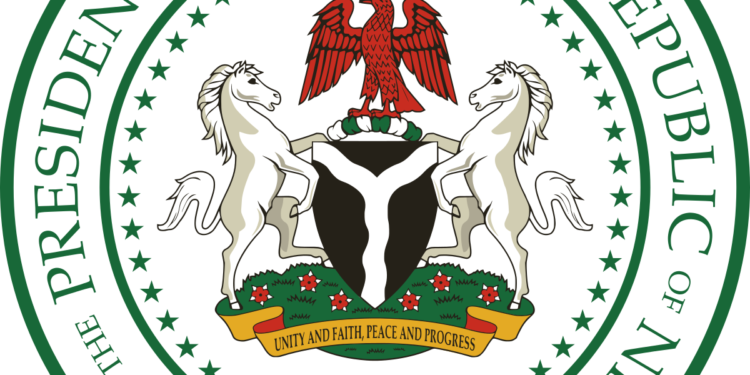By METROWATCH Reporter
President Bola Tinubu has signed into law the Student Loan bill, the Presidency has announced.
Recall the student loan bill, sponsored by the Speaker, of the 9th House of Representatives, Femi Gbajabiamila which provides for interest-free loans to indigent Nigerian students, passed the third reading at the House, two weeks ago.
The law is to provide easy access to higher education for indigent Nigerians through interest-free loans from the Nigerian Education Loan Fund.
Dele Alake, member of the Presidential Strategic Team, made the announcement while briefing State House Correspondents, Monday evening.
He said it was in fulfilment of one of President Tinubu’s electoral promises to liberalise funding of education in the country.
Alake was accompanied by other members of the team, including Tunde Rahman and Abdulaziz Abdulaziz, and the Permanent Secretary, Ministry of Education, David Adejoh.
Asked if the new law will not encourage inflation of school fees, Alake said both situations are unrelated, adding that the idea behind the law is to help indigent students to be able to obtain education in the country.
“We are very happy to announce to you that today, just a few minutes ago, the President His Excellency, Bola Ahmed Tinubu, signed into law, the Student Loans Bill and that Student Loans Bill, you all know what it entails, what it connotes, the meaning.
“This is the promise made during the presidential campaign by the then candidate, His Excellency, Bola Ahmed Tinubu, that he will bring back the student loans issue to the front burner and today, that promise he made has been kept, he has just signed that bill into law, which henceforth, will allow or enable our indigent students to access federal government loans to fund their educational pursuit or career and this is how it’s done in other developed climes all over the world”, he said.
He said the prescribed qualification parameters include proof of indigenship of whoever is to be the beneficiary. He said committees will be set up and that the members would be drawn from various parties to superintend over the efficient and proficient disbursement of this facility.
Asked when the Act will take effect and how soon the students can access the loan, Alake said: “of course that is procedural. The bill takes effect immediately, but the procedures will be worked out by the Committees to superintend and all of that will be spelt out.
Also speaking, the Permanent Secretary, Adejoh said: “Today what the President has done goes beyond the symbolism, it is a demonstration of intent in terms of how he wants to handle education as he progresses in his presidency.
“Somebody asked recently about procedures, once the Bill has been signed that is the most important thing. A bill tells you what should be done, the how is should be done is what we’re going to put together. And the good luck is that we have experience already in this area. We already have the federal scholarship scheme running but the difference this Act makes is that it’s going to be a loan board so that people that don’t even have for whatever reason don’t qualify would be able to apply for a loan.
“And I’m very sure the country has learnt from recovery rates of loans and the experience we had we’ll be able to guide how this loan board will work. I want to congratulate the president and most importantly, congratulate us Nigerians because what we have now is that nobody should be to say money did not allow him to go to school. That opportunity will be there. It’ll be inclusive and it will be equitable.”
Asked how much each student can access, he said: “Well, first and foremost, like I said the Act tells you what to do. How you want to do, will be done in terms of procedure. For now, we don’t have a mount for loans because we’ve not been given loans. What we have now is grants which scholarships board already have amounts for those.
“We have a national scholarship award for which we give every beneficiary N250,000 a year. The last administration in the last two years approved revitalization of teachers and in that scheme is to provide N100,000 for every student studying education in colleges of education and 150,000 for students studying education in universities.
“Unfortunately, there are no adequate budgetary provisions to pay everybody. So for the past two years we’ve only succeeded in being final year students but with this loan Act it is going to be a lot easier. And like you know a loan has a cap that if you are looking for loan for first degree, you can’t get more than this because we have to think of repayments in terms of your ability to repay and the number of years it will take you to pay.”
The newly enacted law paves the way for the establishment of the Nigerian Education Bank, which will be vested with the authority to supervise, coordinate, administer, and monitor the management of student loans across the country.
It will serve as the central hub for processing loan applications from students attending higher educational institutions in Nigeria. The bank will carefully screen these applications to ensure they meet all the necessary requirements outlined in the Act.
Additionally, the Nigerian Education Bank will hold the power to approve and disburse loans to qualified applicants. It will diligently monitor and coordinate the students’ loan accounts, ensuring compliance with disbursement procedures. The bank will also keep track of the academic records of loan recipients, including information on their graduation, national service, and employment. This monitoring process ensures that loan beneficiaries commence repayment promptly when due, among other vital functions.
The Act also emphasises equal access to the loan scheme for all students pursuing higher education in public institutions within Nigeria. Discrimination based on gender, religion, tribe, social standing, or disability is strictly prohibited under this Act, ensuring fair and inclusive opportunities for all.










